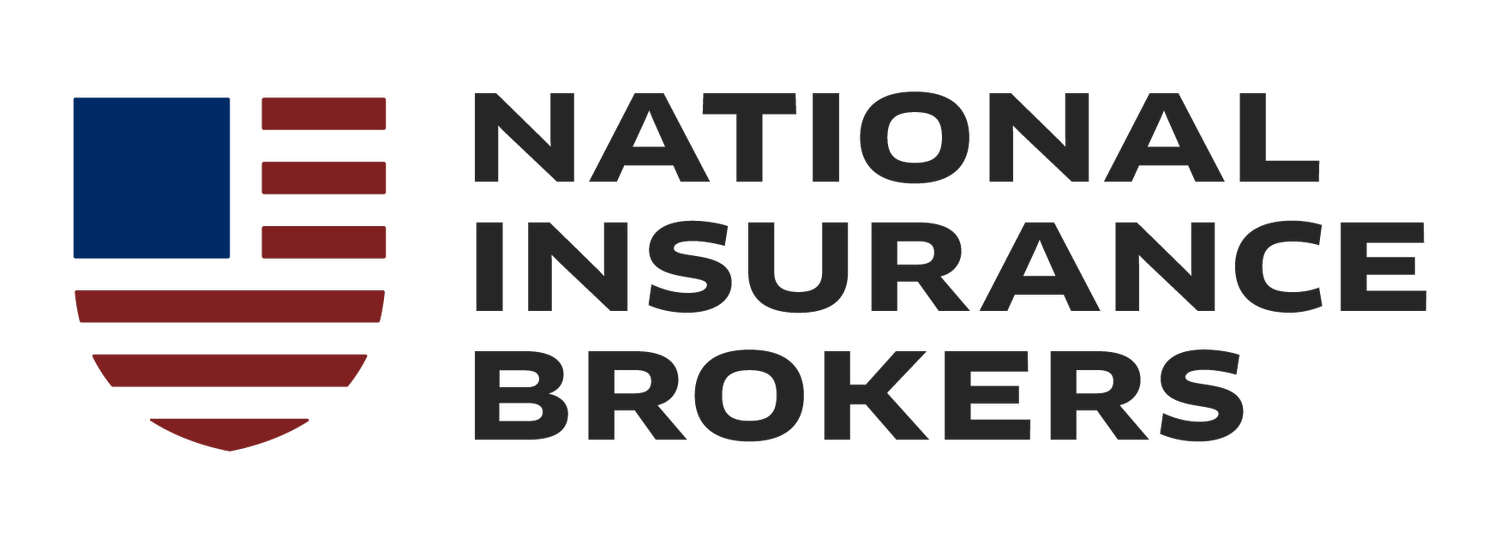Factors That Impact Homeowners Insurance Premiums
When it comes to determining home insurance premiums, many different elements play a role.
In our journey to make you smarter about buying insurance, we'll shed light on these influential factors so you can better understand the amount you pay for your homeowners insurance policy.
Our vast experience at National Insurance Brokers and our commitment to guiding our clients has allowed us to gather this insurance information over the years. We've seen firsthand how these elements can influence insurance costs and have empowered numerous homeowners with this knowledge.
Location, Location, Location
The real estate agents may have got it right. The location of your home has a significant impact on home insurance costs. Homes in high-risk areas, such as regions prone to natural disasters or severe weather conditions, will likely carry higher insurance premiums. These could be areas prone to flooding, wildfires, hurricanes, or tornadoes.
Moreover, the local crime rates can also influence the premiums. If you live in an area known for a higher rate of break-ins or vandalism, insurers may consider it a risk and might adjust the homeowners insurance rate accordingly. Proximity to resources like a fire department can also be a determining factor, as quicker response times reduce potential damage.
Moreover, homes located near coastal areas can sometimes face higher homeowners insurance rates due to the possibility of damage from saltwater and increased storm activity.
Similarly, a house located closer to a busy street or commercial area might also face slightly higher premiums due to the increased risk of accidents or thefts. This emphasizes the intricate relationship between location and insurance company assessments.
Dwelling Characteristics
The specifics of your home play a pivotal role in determining the home insurance premium. A home's value and the materials used in its construction are central to this. For instance, homes built with fire-resistant materials might attract lower premiums, while those made from wood could be seen as higher risk.
Age is another influencer. Older homes, especially those needing repairs, might be considered liabilities, leading to higher home insurance premiums. On the other hand, newer homes with modern safety features and building standards may benefit from lower rates.
Furthermore, your home’s design – whether it’s a single-story or multi-story – can influence the homeowners insurance premium. Custom-built homes, which often include specialized features and materials, might command a higher home insurance premium because they can be costlier to repair or replace.
Personal Factors
It's not just about the home; it's also about the homeowner. Your personal history and habits can significantly affect your homeowners insurance premiums. One's credit score is a crucial determinant. A higher credit score, reflecting a good payment history and responsible financial habits, can fetch you lower premiums. Conversely, a lower score might result in increased insurance premiums.
Lifestyle choices also come into play. For instance, smokers might pay more due to the increased risk of house fires. Running a home-based business can also impact rates, given the added liabilities.
Your claims history is another vital factor. Homeowners who have made several home insurance claims in the past might be seen as high risk by insurance providers, leading to higher rates.
Another element often overlooked is the homeowner's credit report. Insurance companies may review your credit report, believing there's a correlation between credit history and the likelihood of filing claims. Maintaining a positive credit report can potentially lead to a reduction in your average annual cost of insurance.
Home Safety Measures
One of the more proactive ways to influence your home insurance premium is through home safety measures. Installing advanced security systems or burglar alarms can significantly reduce the premium amount. Such protective devices signify a reduced risk of theft or vandalism, something insurance companies find favorable.
Similarly, fire safety measures, including smoke detectors and sprinkler systems, can earn you discounts. They not only protect your home but also signal to your insurance company that you're taking proactive steps to mitigate risks.
Furthermore, homes fortified with storm-resistant features, like impact-resistant roofing or storm shutters, are viewed favorably by home insurance providers. Such features reduce the potential damage from severe weather, leading to potential reductions in your premium.
Swimming pools, trampolines, and certain breeds of dogs might be perceived as liabilities, increasing your out of pocket cost. However, ensuring extra safety measures, such as pool fencing or dog training, and opting for extra liability coverage might mitigate these increased costs.
Bundling and Discounts
Insurance companies love when customers trust them with multiple aspects of their lives. As a result, bundling different insurance policies can result in substantial savings.
By combining your homeowners insurance with auto, life, or other insurance policies under the same insurance provider, you might receive significant discounts on your home insurance premiums. This not only streamlines your policies but can also make them more cost-effective.
Another avenue to explore is discounts based on home safety measures. If you've taken precautions like installing a security system, or have carried out home improvement projects that enhance safety, many insurance companies will reward you with discounts. These safety measures reduce potential claims, and insurance providers appreciate this reduced risk.
Also, many insurance companies offer loyalty bonuses. If you've stayed claim-free for several years or have been with the same homeowners insurance company for a particular period, you might qualify for reductions in your home insurance premiums.
Environmental Factors
The environment surrounding your home is pivotal in determining your home insurance rates. If your home is located close to areas prone to natural disasters, like tornadoes, hurricanes, or earthquakes, your premiums might be higher. This is because the insurance company sees a higher likelihood of you claiming due to environmental damage.
Special attention needs to be given to flood zones. Many standard homeowners insurance policies don't cover flooding. If you're located in a flood-prone area, purchasing separate flood insurance becomes essential. It's an added cost but can be invaluable when the waters rise.
Furthermore, the general climate and recurring weather patterns of your location can affect your home insurance premiums. Homes in areas with frequent hail storms, heavy snowfall, or other weather extremes might be subject to higher rates due to increased potential damage.
Conversely, having a well-maintained landscape can sometimes decrease premiums, as it signifies financial protection against potential risks.
Comparison Shopping
As with any significant purchase, it's wise to shop around for homeowners insurance. By obtaining multiple quotes, you can ensure you get the best value for your money. Insurance rates vary widely between providers, and what one company offers as a standard is an additional cost with another.
Online tools and comparison sites have made this process easier than ever. With a few clicks, homeowners can receive quotes from multiple home insurance companies, making it simpler to contrast and compare. However, remember that the cheapest policy is only sometimes the best. It's essential to ensure adequate coverage for your needs.
Moreover, always appreciate the value of professional guidance. Consulting with insurance agents, especially those from, can offer insights into the best policies tailored to your needs.
Maintaining and Updating Policies
As life changes, so do our insurance needs. Regularly reviewing your homeowners insurance policy, at least annually, is essential. Property values can fluctuate, and ensuring your coverage matches your home's current value can protect you from being underinsured.
Moreover, inquire about any new discounts or promotions. As insurance markets evolve, companies often introduce new offers to remain competitive. Checking in with your insurance agent can lead to unexpected savings.
Lastly, as your home undergoes renovations or improvements, updating your policy can be essential. New additions or significant changes require adjustments in coverage.
Additionally, if you've added safety features or systems that offer additional living expenses in case of a disaster, you should inform your insurance provider.
Such features can be significant when it comes to determining premiums and can ensure you're not paying more than necessary. Always keep your homeowners insurance deductible in mind and adjust if your financial situation allows, as this can also influence your premium rate.
Conclusion
While many factors that affect homeowners insurance premiums exist, an informed homeowner can navigate these with ease.
Understanding the intricacies of home insurance costs and seeking expert guidance, especially from trusted sources like National Insurance Brokers, ensures that your home - your most prized possession - remains adequately protected without burning a hole in your pocket.
Our team specializes in providing homeowners the best guidance available. If insurance is something you care about, our brokers will do as well.

